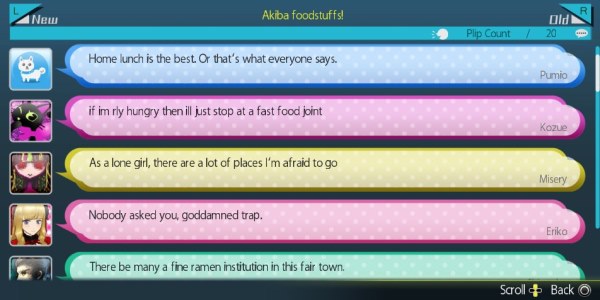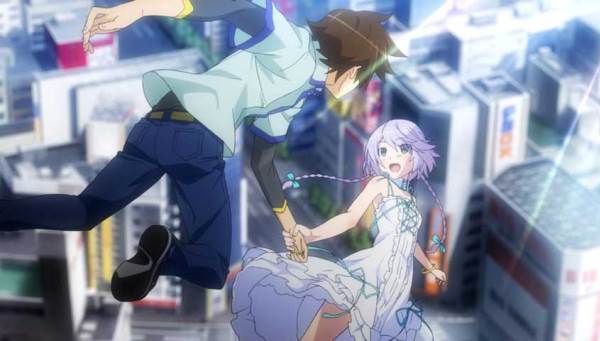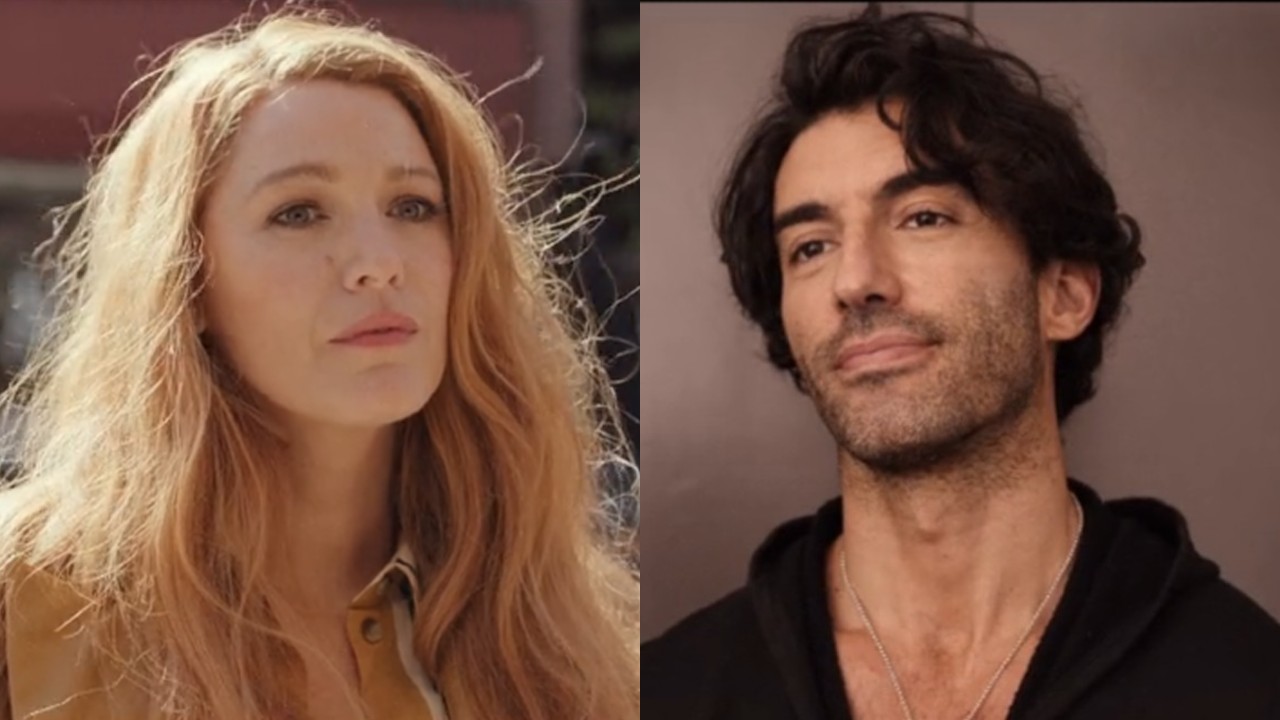The Akiba's Trip 'Trap' Controversy Is Unfounded

Your Daily Blend of Entertainment News
You are now subscribed
Your newsletter sign-up was successful
Akiba’s Trip: Undead and Undressed launched for the PlayStation Vita last week, kicking up a bit of controversy in the process. Surprisingly, said controversy has nothing to do with the gameplay mechanic that has you ripping the clothes off of your enemies. Instead, it was the use of the word “trap” to describe a transgendered character.
In Akiba’s Trip, players take on the role of a young man who finds himself at the frontlines of a war against vampire-like creatures that feed on the life force of humans. Similar to vampires, these “Synthisters” are extremely vulnerable to sunlight, so the best way to defeat them is to, of course, rip off their clothing.
The game never takes itself too seriously, however, and this sort of cheeky combat falls in sync perfectly with the rest of the game’s ode-to-all-things-otaku vibe. If you put some time into the game, the message seems to be that we can all admit that this type of provocative content (guys and gals running around in their underwear and smacking each other with bus stop signs, tee-hee-hee) can be enjoyable on a base level, but there’s a line between fantasy and reality that should not be forgotten.
But that’s just what I got out of the game. Your experience may be totally different and, surprising no one, I could be totally wrong here.
What actually caused the big controversy this week, however, is a line of dialogue that takes place within the game’s imaginary social network, called Pitter. Pitter is used as a way of progressing the story in Akiba’s Trip. As events unfold in the game, a community of locals discuss the latest happenings on Pitter feeds, much like what you would see on Twitter or 4Chan. Each of the characters in these chats has their own personality and, as was the point of the feature, offer the kinds of comments you would expect to actually see on the internet.
The issue comes from a conversation involving one of the Pitter characters who constantly brings up the fact that they are a girl, making it clear that they are, in fact, a transgendered person. In response to one of their statements, another Pitter character refers to them as a “trap,” a term that carries more than a few negative connotations for the transgendered community.

This resulted in some folks calling out XSEED Games, the developer responsible for localizing Akiba’s Trip for the United States, which in turn resulted in an XSEED response stating that the decision to use the word was based on a desire to properly localize the game for the English-speaking audience and stay true to the original intent.
Your Daily Blend of Entertainment News
Otaku USA, along with various other sites, covered the incident, posing the question of whether or not XSEED should have, perhaps, used a different word.
This confuses me a bit, and makes me wonder where the line on potentially offensive language should be drawn. I appreciate the fact that I will never understand the true gravity of that word in the sense that it was used by the fictional Pitter character, but I can’t quite grasp why the fact that it carries that kind of weight means that it shouldn’t be used, ever, period.
Hold on a second, while I explain what I mean by that.
I’m not, by any means, suggesting that the word “trap” should be thrown around willy-nilly for the sake of shock or entertainment. That’s just ridiculous.
The closest example that comes to mind is the overuse of the word “bitch” in Arkham City. Those were some unsavory gentlemen referencing Catwoman, so their use of the word wasn’t shocking in the least. The sheer amount of times they said it, however, is when it starts to become a problem. It stopped being about evil characters using hurtful or degrading language, and started to become excessive and hint at more serious underlying issues.
At that point, the player stops thinking, "man, those were a few sexist, insecure henchman" and likely starts to wonder, "okay, seriously, what does this writer have against women? Or are they just that lacking in creativity that they can't think of any other way to show just how eeeevil these characters are?" In other words, the game stops portraying problematic people and language, and instead becomes a legitimate part of the problem itself.
Now, back to Akiba’s Trip, and my point concerning the game’s single use of the word “trap.” As I said, all of the characters on Pitter are rather unique, ranging the gamut of what you would expect to find in an actual message board. There’s the perfectly average guy, the super nerd, the dude who is pretending he is some sort of character that he has created, and the obnoxious troll who hates on everyone and everything. The character that uses the word in question is that last one I just described, and you quickly identify them as being the type of person most sane individuals would do their best to ignore online.
It makes perfect sense that they would throw some hurtful language around and, in this particular instance, it happens to be the word "trap." It would have made just as much sense, and been just as unsurprising to me, had this character dropped a racial slur or any other word meant to convey ignorant hatefulness if the story/setting warranted it. Had they used those terms repetitively, in a situation where it made no sense, or had the game appeared to celebrate that use, it would be a completely different story. But that’s not the case here. Context has to be given some consideration.
The sad fact of the matter is that hate and ignorance is alive and well in this world, and to pretend otherwise is just delusional. In works of fiction, those types of characters are going to pop up from time to time and, yes, they're going to say things that we may disagree with. But if those aspects of the story are utilized responsibly and service the character/narrative, then we can't hamstring storytellers by demanding that they be stricken from existence.
Staff Writer for CinemaBlend.

